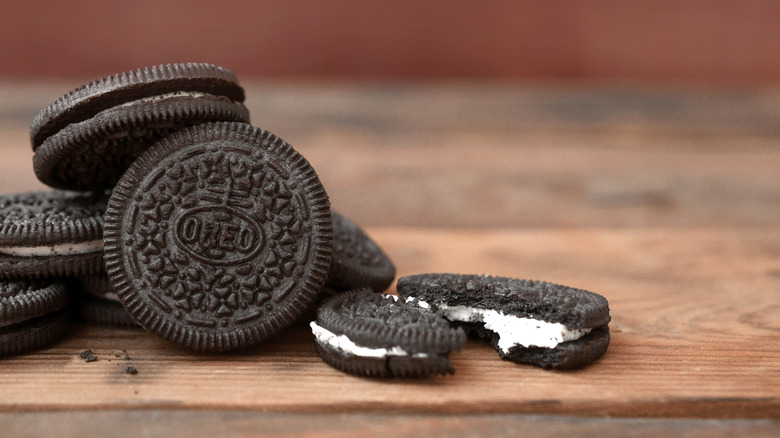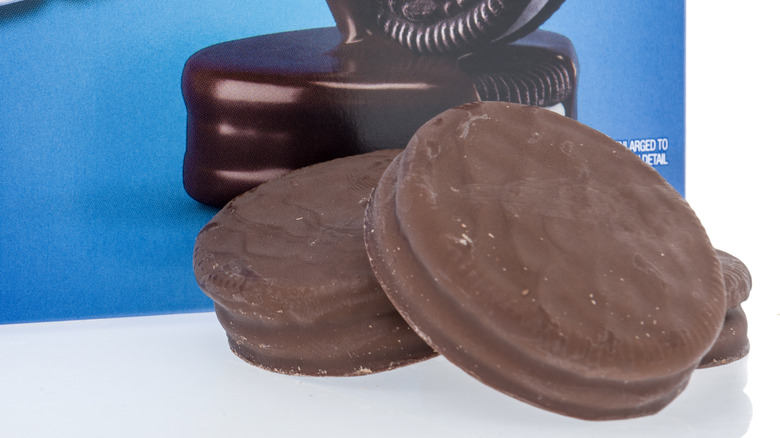Why This Snack Food Giant Is Being Sued Over An Oreo Flavor
Oreo and its parent company, Mondelez International, have courted controversy and lawsuits for years. Back in 2018, Hydrox filed a complaint with the Federal Trade Commission accusing Oreo of displacing their cookies on store shelves across the country, as posted on their Facebook. About two years later, according to Top Class Actions, a judge also threw out a class action lawsuit against Oreo after some consumers claimed the cookies misled buyers by stating that the product contains real cocoa.
Mondelez International now has to deal with another class action lawsuit over their Oreo brand, and the situation doesn't look pretty.
Now, Mondelez International has landed in some hot water over claims that its Fudge Covered Mint Oreos don't contain any actual fudge. The plaintiffs claim that these cookies don't contain dairy ingredients with milkfat — key components of fudge. Instead, the Oreos in question use palm and palm kernel oil in addition to nonfat milk to create the fudge-like chocolate exterior on these cookies. The lawsuit alleges that Mondelez and Oreo intentionally misled customers, especially after advertising a picture of an Oreo dipped in what appears to be fudge (via ClassAction).
A fudge-based lawsuit that puts Mondelez International on the line
The case aimed at Mondelez International aims to clearly define fudge. According to ClassAction, the official lawsuit defines fudge over the course of several pages and includes historic recipes from 1896 and 1902, while citing chefs that claim that real fudge can't use margarine or nondairy fat. Additionally, the court case aims to change the way Mondelez advertises these particular fudge cookies, while seeking monetary damages for the allegedly misleading information.
When citizens sometimes challenge Oreo and Mondelez International over their products, Oreo typically comes out on top. CNN reports that a 2003 case based around Oreos containing trans fat had to get dropped after the plaintiff and cookie company settled. Experts believe that this new fudge claim won't go anywhere and might just result in the products receiving an asterisk linked to a disclaimer mentioning the ingredients of the fudge, per Fox News. If the judge sides with the plaintiffs, the doors could reopen to a slew of food lawsuits, as many snacks use fudge that lacks milkfat. If you love this cookie, make sure to keep a close eye on this case — the outcome could change the way Mondelez International produces this snack.

